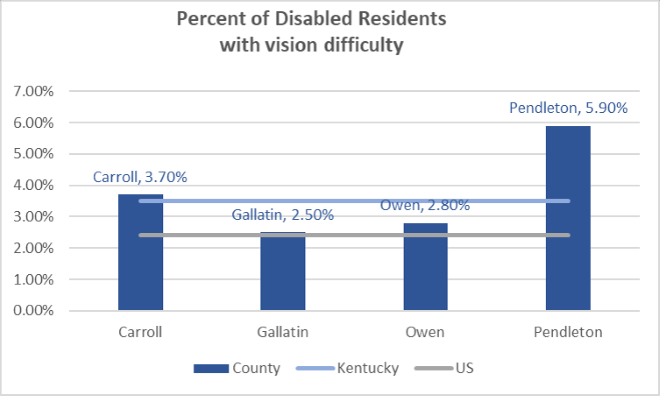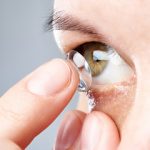Healthy Vision
Importance of Healthy Vision
Video edited on Kapwing
By far, our eyesight is the most important of our five senses. It is responsible for perceiving up to 80% of what we sense or take in from our environment. Accordingly, healthy vision and regular eye care is vital to our quality of life.

How do I know if I am at risk for vision loss?
While aging increases your risk, a number of health conditions also contribute to a higher risk of eye diseases.
For instance, diabetic retinopathy, glaucoma, and age-related macular degeneration are more common among people who are obese or overweight. This is commonly due to the blockage of the extremely small blood vessels in the eyes.
Not surprisingly, those with diabetes are at increased risk of eye diseases as are those with high blood pressure.
Also having a familial history of eye diseases such as age-related macular degeneration and glaucoma increases your risk.
Lastly, those of African American, Native American, and Hispanic descent are at increased risk compared with the general population.
If you have questions or concerns about your risk, talk with your primary care physician or healthcare provider.
How you can reduce your risks of eye disease
First – take care of your overall health. Since a variety of health conditions can lead to eye disease and vision problems it is important to stay on top of those conditions and get regular medical care. This includes getting a dilated eye exam on a regular schedule based on your age and risks.
Second – create and maintain healthy habits that support good eye health such as eating healthy foods, being active, and smoking cessation.

Leafy Green Vegetables are rich in vitamin C, lutein, and zeaxanthin which are necessary for good eye health.

Fish such as salmon, halibut, and tuna are rich in Omega-3 fatty acids which may help reduce the risk of high eye pressure and alleviate dry eye syndrome.

Being physically active can help reduce your risk of many health conditions that lead to and contribute to eye diseases such as diabetes, high blood pressure, and high cholesterol.
Lastly, protect your eyes from harmful UV radiation, injuries, strain, and more by wearing proper protective eyewear, giving your eyes a break, and using good hygiene.

Protecting your eyes from harmful UV rays is essential for good eye health, even on cloudy days. Make sure your sunglasses protect 99-100% of both UVA and UVB radiation.

Practice the 20x20x20 for good eye health and screen breaks. Every 20 minutes look at something at least 20 feet away for 20 seconds.

Prevent injuries to your eyes by wearing safety glasses during certain activities such as sports, doing construction work or home repairs as well as in certain employment situations.

Use good hygiene if you wear contacts. Disinfect and replace your lenses regularly and always wash your hands before removing or placing contact lenses in your eyes.
- Published: June 21, 2022
- Page reviewed/updated: May 3, 2023


